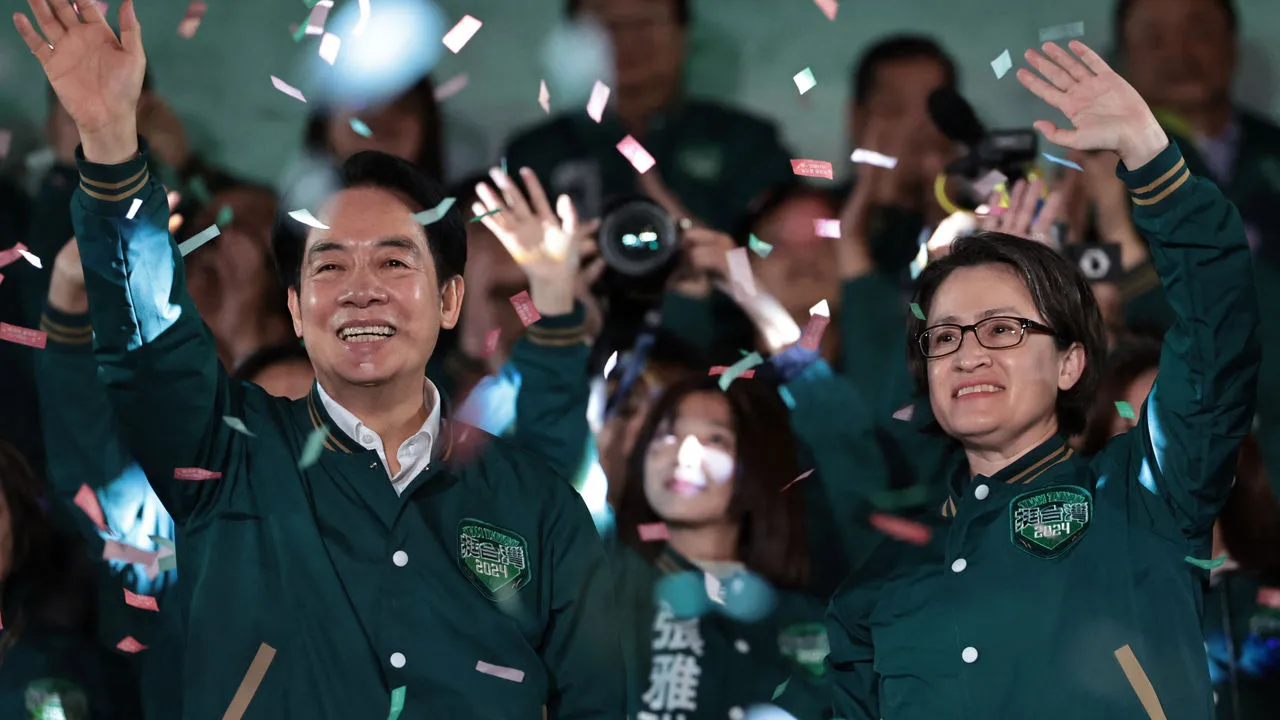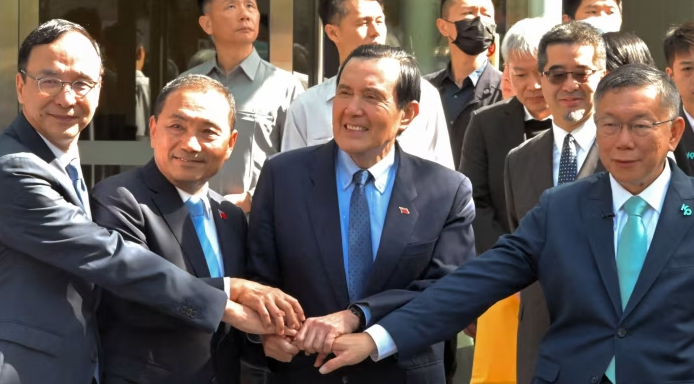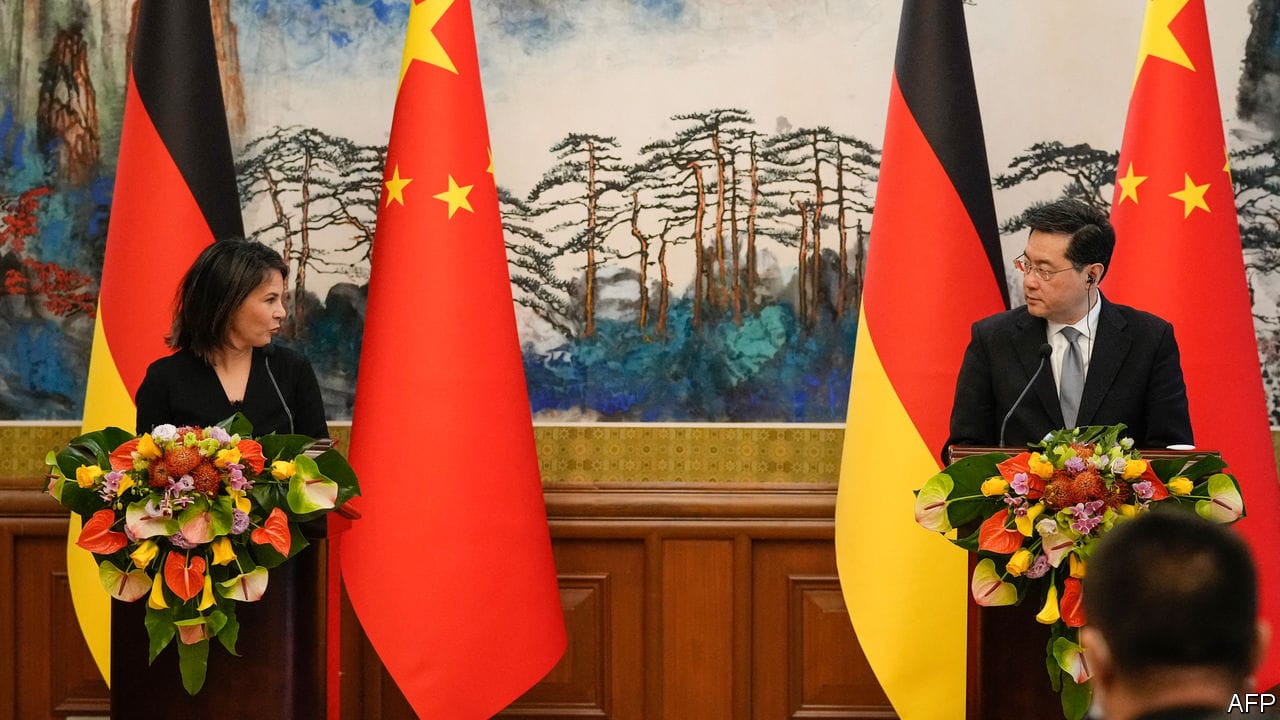Taiwan Elects US-Friendly President, Defying China Warnings
Taiwan elected current vice president Lai Ching-te as leader of the global chip hub at the center of US-China tensions, putting in power a man Beijing has branded an “instigator of war.”
Lai, of the ruling Democratic Progressive Party, sealed victory in the island’s most hotly contested election in decades with 40.1% of the counted vote — the lowest winning percentage since another three-way race in 2000.
His victory over opposition parties willing to restart dialogue with China dealt a blow to Beijing’s ambitions to have greater influence over the island it considers a breakaway province. The Kuomintang’s Hou Yu-ih trailed in second place, while the Taiwan People’s Party came last.
“We are telling the international community that between democracy and authoritarianism, we will stand on the side of democracy,” Lai declared at a victory rally in Taipei on Saturday night, to rounds of rapturous applause from the crowd.
Taiwan’s next president also vowed to keep peace across the Taiwan Strait, while pledging continued strong ties with major democracies — illustrating the delicate balancing act he has ahead to maintain interactions with Washington while avoiding tensions with Beijing flaring into a conflict.
The reelection of a party that’s tried to minimize China’s influence for a record third straight term will test the recent stabilization of ties between Beijing and Washington, after US President Joe Biden held talks with his Chinese counterpart Xi Jinping in November. Beijing blasted Lai as a “troublemaker” and “separatist” before the election.
A very inspiring moment tonight when DPP’s Lai Ching-te waves at and thanks his supporters. The host on the stage say DPP will continue to safeguard Taiwanese people and let Taiwan be peaceful and prosperous. Supporters are all cheering and in high spirits. #Taiwanelections2024 pic.twitter.com/lmyx36tsED
— Cindy Wang (@hwang61) January 13, 2024
Beijing views Lai with “deep suspicion” despite his vows for policy continuity, according to Jennifer Welch, chief geoeconomics analyst at Bloomberg Economics. “Higher cross-strait tensions don’t mean a crisis is imminent, but would mean Taipei, Washington, and Beijing have to work harder to avoid one,” she added.
China avoided mentioning the winner’s name in its initial responses. The election result showed the DPP doesn’t “represent mainstream public opinion on the island” of 23 million people, said Chen Binhua, the Taiwan Affairs Office spokesperson, in a statement.
The Foreign Ministry in Beijing said that “whatever changes take place in Taiwan,” China will continue opposing Taiwan independence. Lai and current President Tsai Ing-wen both say that their self-ruled island doesn’t need to declare independence because it is an already de facto state.
Taiwan is now on high alert for further reaction from China. Security officials in Taipei said they don’t expect Beijing to conduct large military exercises around the island immediately after the election, but see it ratcheting up pressure before the new president takes office. Tsai will step down in May due to fulfilling the two-term limit.
Biden will dispatch a bipartisan delegation of former senior officials to the island in the wake of the result, according to a senior US administration official. That move is likely to prompt a response from China, which opposes nations having official contact with the government in Taipei.
Beijing has conducted major military drills around Taiwan twice since August 2022, in response to Tsai meeting with US officials. Biden, who has pledged to defend Taiwan from any Chinese invasion, said in brief comments Saturday that the US doesn’t support Taiwan independence.
“The election isn’t really over until Beijing’s response has played out,” said Danny Russel, vice president of the Asia Society Policy Institute. “Having warned that the election marked a choice between ‘war and peace,’ doesn’t the mainland want the voters to face consequences for their ‘wrong’ choice?”

Lai’s victory speech was broadcast simultaneously in English, as the world’s only Chinese-speaking democracy marked the culmination of a energetically fought race that’s been closely watched around the globe.
Hsiao Bi-khim, Taiwan’s former envoy to the US and Lai’s running mate, stood at his side during his address — a reminder of his party’s strong international ties.
US Secretary of State Antony Blinken said the election showed the strength of Taiwan’s democracy and reiterated that the US is committed to seeing “the peaceful resolution of differences, free from coercion and pressure.”
Washington will work with Lai and all leaders in Taiwan “to further our longstanding unofficial relationship” consistent with the US’s one-China policy, he added in the statement.
While Lai signaled on Saturday that he would cooperate with China, his party is unlikely to be able to restart talks with Beijing, which have been suspended for the past eight years. The Communist Party demands agreement that Taiwan is part of China as a prerequisite for such dialogue, a red line for the DPP.
Taiwanese voters’ decision to back Lai despite fatigue with his party highlighted that their desire to keep China at arm’s length outweighed mounting frustrations over domestic issues, such as high property prices and slower-than-expected wage growth.
Touching on economic issues, Lai pledged to “vigorously” help further develop the island’s chip industry, which is dominated by Taiwan Semiconductor Manufacturing Co. The island’s pivotal role in the global supply chain of cutting-edge technology has been dubbed a “silicon shield” against any Chinese invasion.
Four more years for the ruling party in Taiwan. Introducing #Taiwan President-Elect Lai Ching-te of the more independence-minded Democratic Progressive Party. @Taiwanelections @BloombergTV pic.twitter.com/WVLJLZpHXl
— Stephen Engle (@EngleTV) January 13, 2024
Overall, it was a disappointing evening for the two opposition parties, whose earlier attempt to form an alliance collapsed in a spectacular display of public acrimony. That union could have brought them to power, and increased Beijing’s influence.
But they could point to some small wins in the legislature. The TPP increased its seats there to eight, allowing it to play kingmaker between the two main parties, which lack an outright majority. Ko Wen-je declared the results showed the party he founded was now a major opposition force.
The KMT increased its number of seats in the law-making body that decides all government budgets and funding for major arms purchases.
Still, its losing candidate, Hou, apologized for disappointing his voters on Saturday night as he congratulated the DPP, adding: “I hope they don’t fail the Taiwanese people.”
— With assistance from Betty Hou, Jennifer Creery, Debby Wu, Jacob Gu, Peter Martin, and Michelle Jamrisko
(Updates with reaction by Biden, Chinese government and Blinken.)
Keywords
Newer articles
<p>Chinese officials say they "firmly oppose" the platform being divested.</p>
Israel Iran attack: Damage seen at air base in Isfahan
Ukraine ‘will have a chance at victory’ with new US aid, Zelenskyy says
Ukraine war: Kyiv uses longer-range US missiles for first time
Congress passes bill that could ban TikTok after years of false starts
House passes potential TikTok ban that could speed through Senate
Who will be Trump’s VP? A shortlist
How soon could US ban TikTok after Congress approved bill?
Finally, America’s Congress does right by Ukraine
Taylor Swift broke Spotify record with new album




